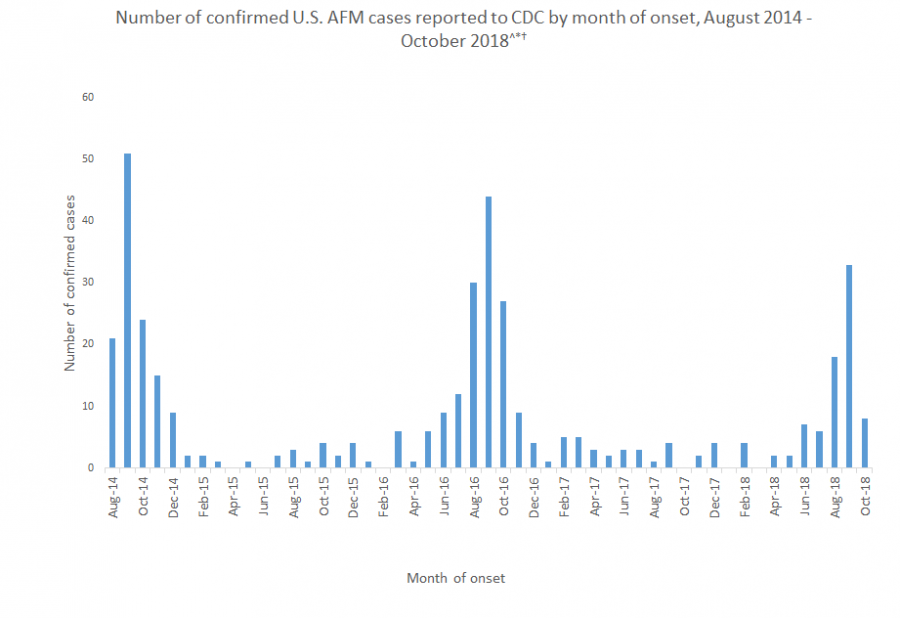Polio like disease infects US population
November 27, 2018
ALISON GRAFTON
H/S Editor
Starting in 2014, a new branch of acute flaccid myelitis (AFM), a disease similar to Polio, erupted, affecting multiple children in many cities like Baltimore. This disease, although is rare, is spreading.
Since 2014 until October 2018, there have been 404 confirmed cases of AFM, most occurring in children, according to the CDC. The Virginia Department of Health says that AFM “is not spread person to person,” but rather through viruses by mosquitoes and other vectors
AFM affects the nervous system, which makes it similar to Polio. According to the CDC, it mainly targets the spinal cord, “causing weakness in one or more limbs.” Symptoms of AFM are similar to other diseases that target the nervous system. These symptoms include “weakness and loss of muscle tone and reflexes in the arms or legs, facial droop or weakness, difficulty moving the eyes, drooping eyelids, difficulty swallowing, slurred speech.”
According to Independent.co, in Minnesota where the recent outbreak surfaced, the hospitals were used to only seeing about one case every year. In just a month, Minnesota experienced six cases according to CBS News. Heavy News states that cases have been confirmed in Colorado and Texas, and polio-like diseases have been confirmed in Maryland, but it is unclear on whether they are AFM.
The sudden strike in AFM worries many parents, but AFM is very rare. According to the CDC, “less than one in a million people in the United States get AFM each year.” Despite not knowing specifically how to protect yourself and others from AFM and other similar diseases, the CDC says it is “important to practice disease prevention steps, such as staying up-to-date on vaccines, washing your hands, and protecting yourself from mosquito bites.”
Nurse Joanne Dorsey says that at NH, AFM us nothing to be worried about. She says that, “students and teachers much more likely to be exposed to common cold and flu viruses.” The common cold and flu are preventable with simply, “Getting a flu shot, keeping current with immunizations, staying home if you have a fever and vigilant hand-washing.”
However, in the rare occurrence that AFM did arrive at North Harford, the nurses would follow the normal “full assessment,” followed by contact the parent to take them to the doctor or emergency room.” Just like any other instance, if the student had difficulty breathing or they could not wait for the parent, they would call 911.







